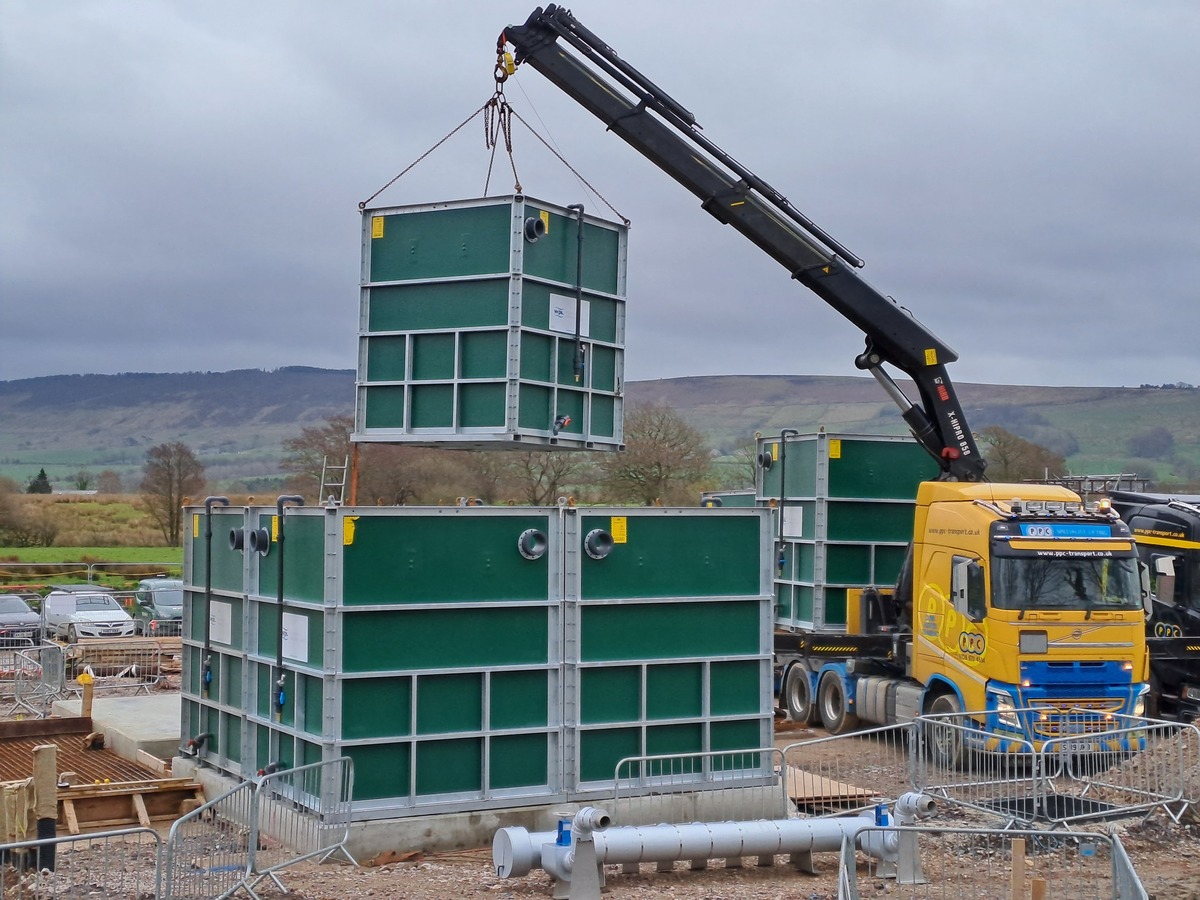We’re on LinkedIn!
Connect with WCS Environmental Engineering Safe Efficient Compliance
Two UK water utilities have agreed orders for the installation of multiple Hybrid-SAF modular biological treatment units from wastewater treatment specialist WCS Environmental Engineering (WCSEE).
The contracts with Scottish Water, and United Utilities demonstrate growing demand for this adaptable wastewater treatment technology that gives utilities greater flexibility in meeting the needs of growing populations and tightening regulatory standards.
WCSEE is providing nine units to Scottish Water, working with ESD, for the upgrade of East Linton wastewater treatment works in East Lothian, which is adapting to increased pressure on the plant due to population growth.
The second agreement is with United Utilities and C2V+, which requires three Hybrid-SAFs to reduce ammonia levels in effluent discharged at a small wastewater treatment plant in Cheshire, as part of the company’s capital improvement plan. The upgrade follows a tightening of the Environment Agency consent.
WCSEE utility manager Andrew Haywood said, “WCSEE is proud that the Hybrid-SAF technology has been selected by these three utilities to meet their challenges on population growth and the tightening regulatory landscape. WCSEE has long been an approved or framework supplier for Anglian Water, Scottish Water, and United Utilities, and we look forward to developing these relationships further, by working closely with them on these expansion and upgrade projects.”
WCSEE’s patented Hybrid-SAF technology employs a submerged moving-bed and fixed-film reactor, proven to treat wastewater with energy efficiency compared to other submerged SAFs. The flow balancing in the primary tank means it can handle variable flows and loads, making it ideal for seasonal and variable demands.
Historically, the Hybrid-SAF was preferred for smaller populations in rural locations. However, its modular design and smaller footprint over comparable technologies make it versatile and flexible for deployment in a wide range of locations.
Hybrid-SAF treatment units are built offsite in controlled conditions and are easily transported to site, ready for installation. They can be moved between locations as needs and requirements change – minimising onsite disruption, reducing waste, and optimising site footprint.
The flexibility of the Hybrid-SAF makes tailored designs and site-specific configurations possible,” says Haywood. “It is also possible to rapidly augment or retrofit existing plant processes.
“New-build installations are now being specified for higher volumes than ever before, with the process suitable for up to 4,250 population equivalent based on the ammonia load.

Installation of modular Hybrid-SAF technology
With nutrient neutrality requirements being enforced at off-mains properties in areas of England, homeowners need to ...
Why managing variable loads matters If you have an off mains wastewater treatment system operating at a hospitality, ...
Trade effluents are liquid waste streams discharged into public sewers from businesses and industrial processes. Their ...
Connect with WCS Environmental Engineering Safe Efficient Compliance
WCS Group is a trading name for WCS Environmental Ltd, registered in England and Wales (Number 02184649) at 20 Grosvenor Place, London, SW1X 7HN. Head Office – 17 Wheatstone Court, Waterwells Business Park, Gloucester, GL2 2AQ. WCS Group is a Marlowe Critical Services Company owned by Marlowe plc. 2025© WCS Environmental Ltd.